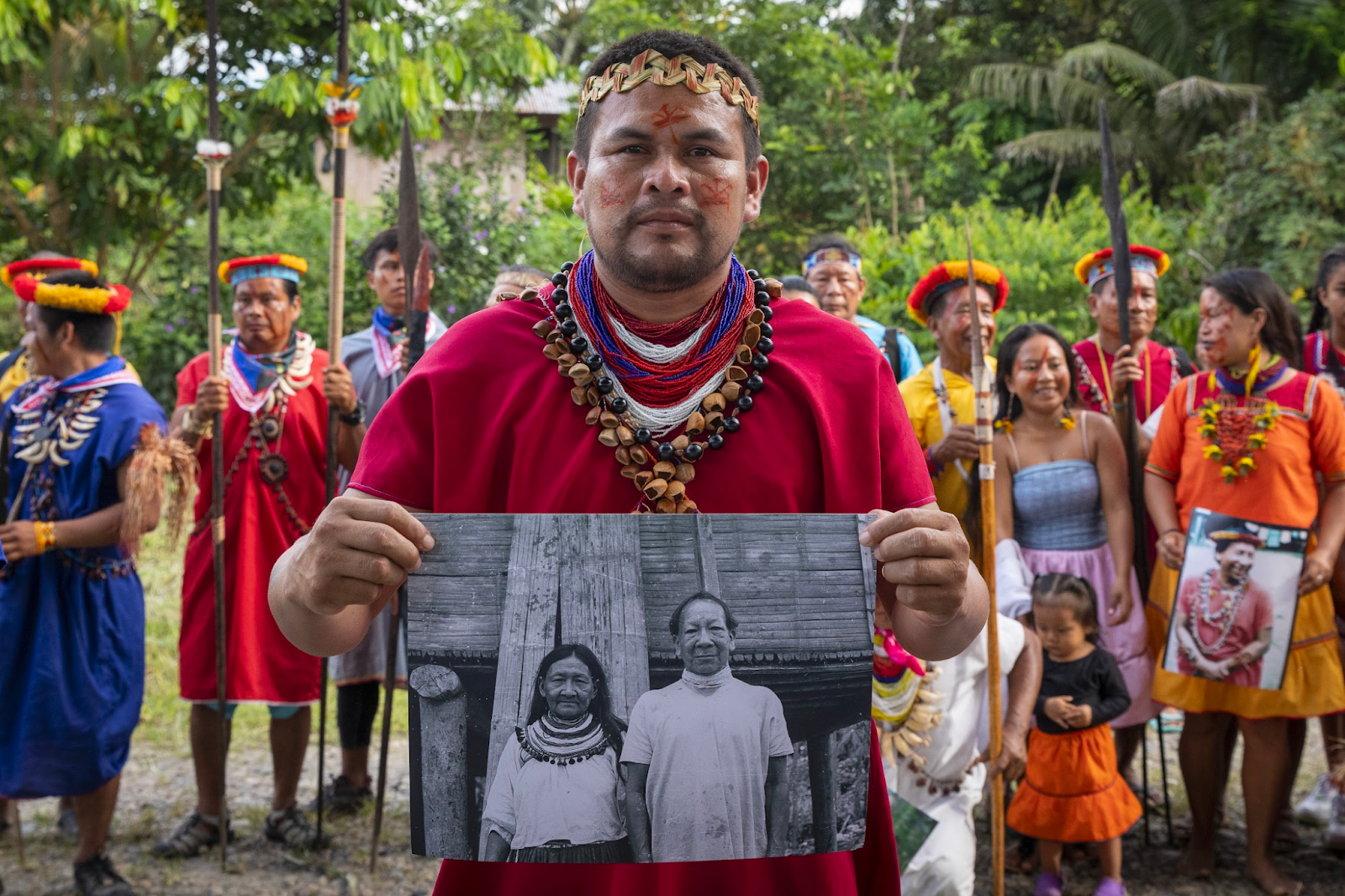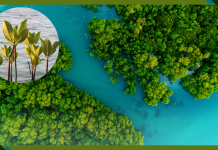Written by: Kimberly White
The Amazonian Siekopai Nation are fighting to reclaim their ancestral lands in an ongoing legal battle with the Ecuadorian government.
Throughout the years, the Ecuadorian government has failed to recognize the Siekopai’s rights to their ancestral home and deliver a land title, violating the Siekopai’s territorial rights enshrined in international law and Ecuador’s own constitution.
In response to the government’s continued failure to recognize the Siekopai as the ancestral stewards of Pë’këya, the Siekopai filed suit against the Ecuadorian government in September.
“For too long, the Ministry of Environment of Ecuador has unjustifiably postponed the delivery of a land title to the Siekopai Nation. Being a demographic minority and having such a special relationship with this territory, the lack of guarantees condemns the Siekopai to cultural extinction and violates their territorial rights recognized in Ecuador’s Constitution and international law,” stated Maria Espinosa, Amazon Frontlines lawyer.
In a recent development, three judges from the Provincial Court of Sucumbios journeyed to the community of San Pablo de Katëtsiaya in the Amazon rainforest on May 30th to hear an appeal from the Siekopai community fighting to regain ownership over their sacred territory, Pë’këya, marking the first time a judicial hearing has taken place on Siekopai land.
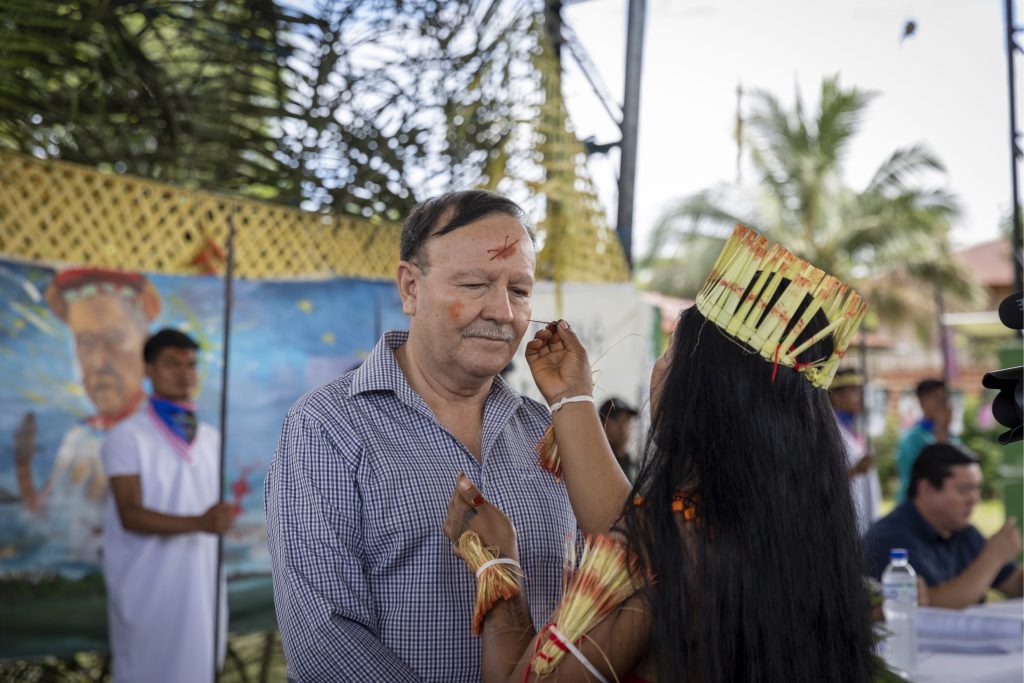
The hearing began with traditional Siekopai Nation rituals, including a shared ceremonial plant brew known as Yokó. The judges’ faces were painted with sacred symbols using red achiote fruit. The Siekopai are well-known for their extensive knowledge of local flora and fauna, working with the rich biodiversity of Pë’këya to develop a myriad of rituals and healing practices.
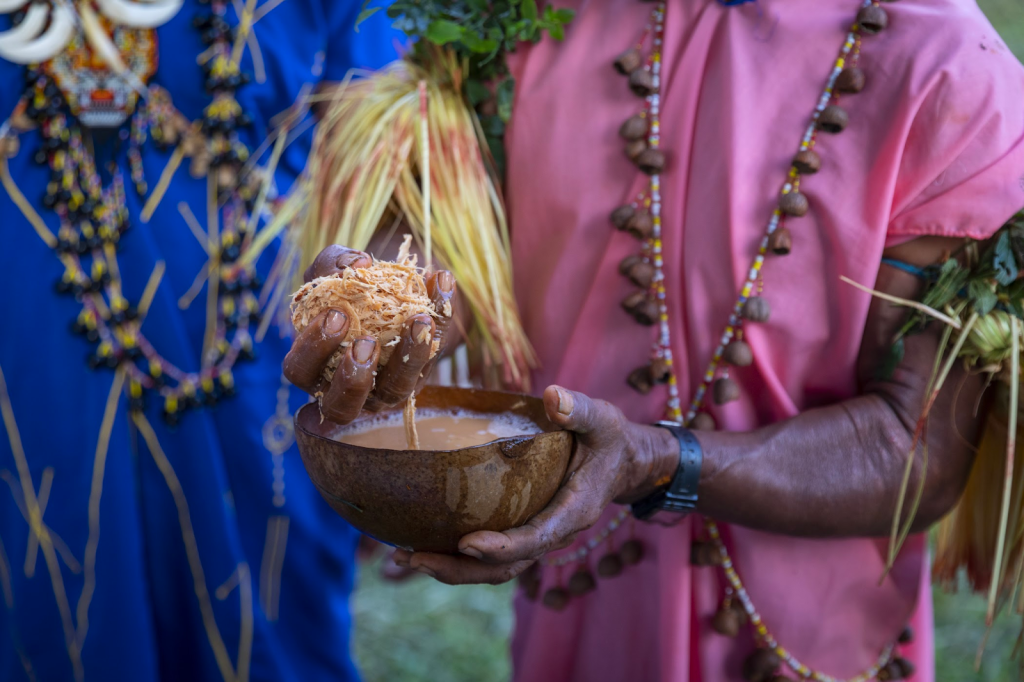
The judges then began to hear oral testimony from Siekopai elders, leaders, and youth about their sacred connection to Pë’këya and their hope to recover their ancestral homeland to ensure the physical and cultural survival of the Siekopai for generations.
“We are not asking for land but for the guarantee to continue living as Siekopai. We are fighting for the space that will allow us to do so. If we do not return, we lose our identity. If our grandparents pass away, we lose the connection,” said Yadira Ocoguaje, granddaughter of the late Cesáreo Piaguaje, one of Siekopai’s most revered elders and shamans.
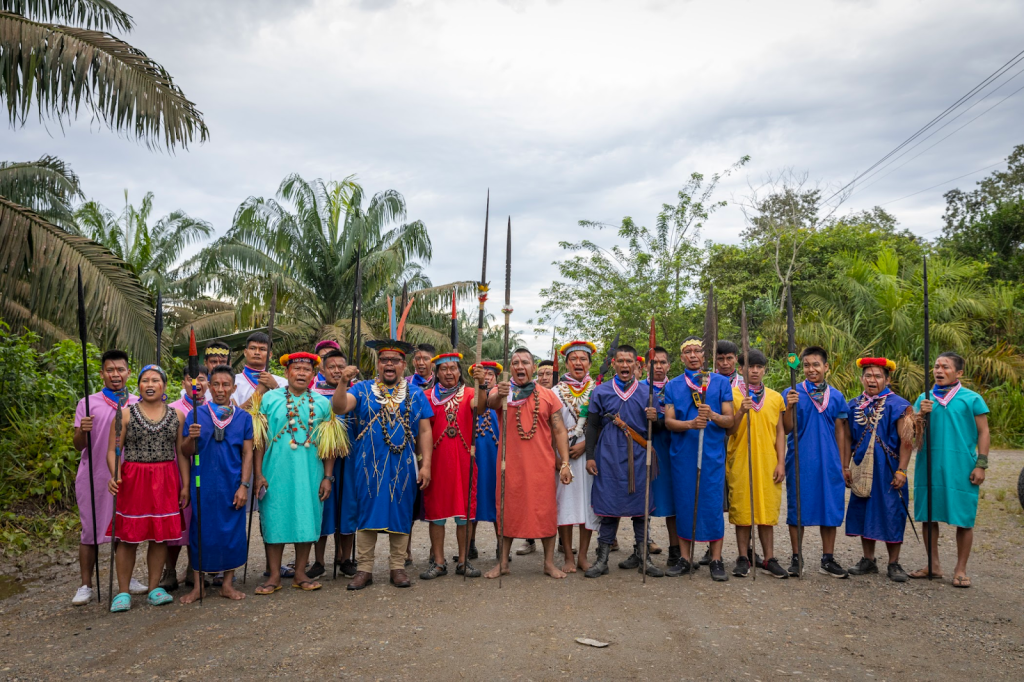
During the hearing, the Siekopai were joined by the Waorani of Pastaza and the A’i Cofán of Sinangoe. The Waorani and A’i Cofán notably were victorious in their legal cases against Big Oil and gold mining. The Waorani and A’i Cofán presented amicus curiae briefs as part of the appeal. A former judge from Ecuador’s Constitutional Court, ethnobotanists, and historians also presented amicus curiae. Overall, more than 20 amicus curiae briefs were given in support of the Siekopai Nation.
“It is crucial for the Siekopai people to be granted dominion and ancestral possession of their territory. Eight hundred people may cease to exist as a nation,” said Ramiro Ávila, Ex-Judge at Ecuador’s Constitutional Court & Professor at the Universidad Andina Simón Bolívar-Ecuador. “We are talking about plurinationality, there is never only one way to solve the territorial issues of Indigenous People, but in the case of the Siekopai, their lawsuit is the adequate course of action.”
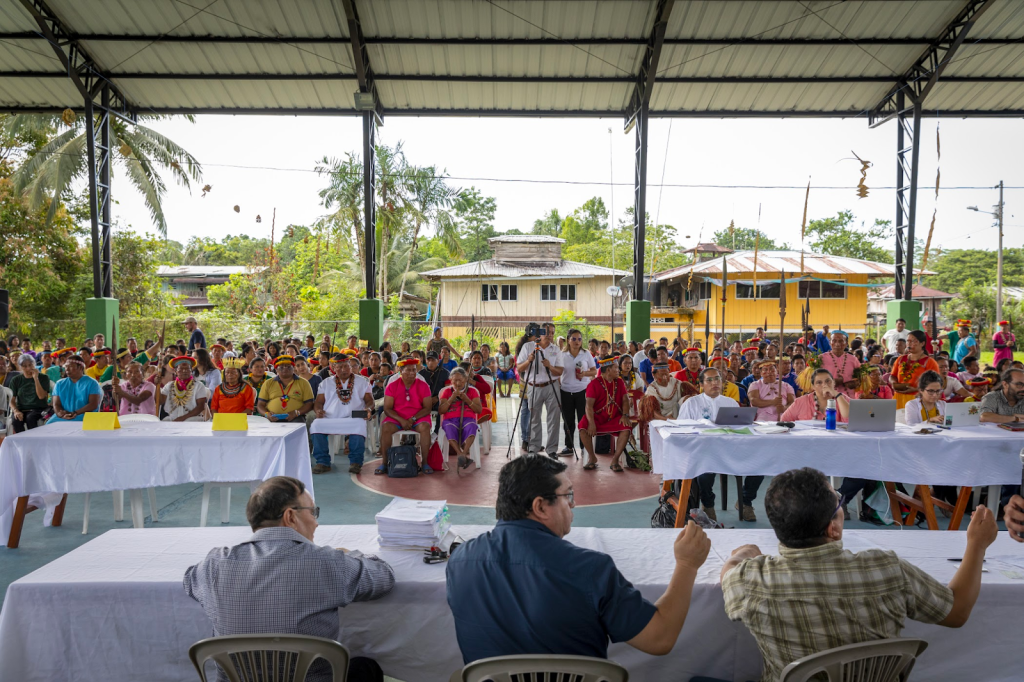
Representatives of Ecuador’s Ministry of Environment, Water, and Ecological Transition and the Attorney General’s Office failed to travel to San Pablo de Katëtsiaya for the hearing, instead opting to participate virtually. A move which shows the State’s “lack of willingness to engage in an intercultural dialogue with Indigenous People,” says Amazon Frontlines.
Now, the hearing results are pending, and the Siekopai people anxiously await the court’s ruling in the coming weeks.
Verdict could be a major win for the Siekopai and other Indigenous nations
A positive verdict would be a significant victory for the Siekopai Nation and set a precedent for other Indigenous communities trying to regain control of their ancestral lands in the Amazon.
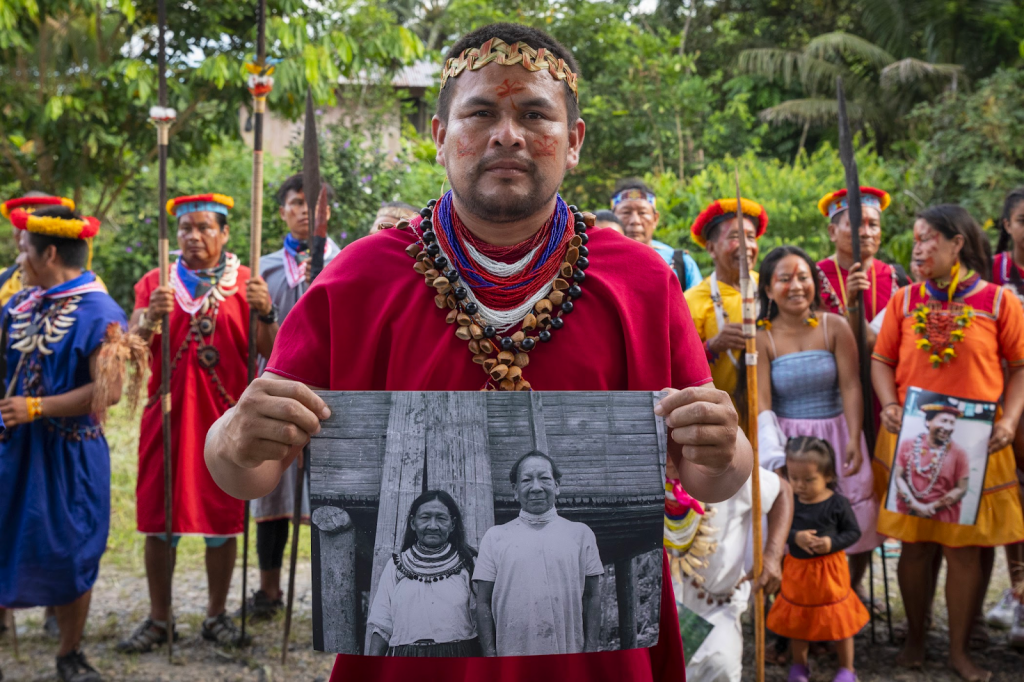
If the court sides with the Siekopai, the Ecuadorian government would be prohibited from further appeals, and the Siekopai would be granted proper land titling to their ancestral territory.
“A victory for the Siekopai Nation and the formalization of their ancestral heartland would provide juridical protection to this great Indigenous nation at risk of disappearance, it would guarantee their cultural survival as a nation and would set a precedent for dozens of Indigenous Peoples in Ecuador who are struggling to recover their ancestral territories from government hands or third parties,” said Espinosa.
Fighting for their territory since the 1940s
“During the last century, the Siekopai Nation has been the systematic victim of dispossession by rubber companies and religious missions and forcibly displaced from their ancestral territory due to the armed conflict between Ecuador and Peru,” Espinosa adds.
The Siekopai Nation’s fight for their territory began in the early 1940s during the Ecuadorian-Peruvian war. The region was militarized during the war, separating the community and threatening their ancestral customs. Members of the Siekopai community were forced to flee the area as both sides accused them of working for the other. Sporadic warfare continued throughout the years, eventually ending with a peace accord to end the territorial dispute signed by both countries in 1998.
Although the war ended and a peace treaty was adopted, the Siekopai’s territory remained divided.
In the late 1970s, Ecuador incorporated a portion of Siekopai territory into the Cuaybeno Wildlife Reserve, which later expanded in the 1990s. While this resulted in certain environmental protections, the Siekopai did not have a say over their land’s management.
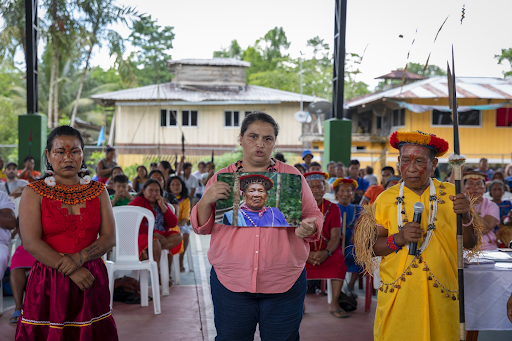
Siekopai representatives’ requests for a land title have been met with little response and lengthy delays. The Siekopai submitted a request to Ecuador’s Ombudsman, who ruled in their favor. However, the government still failed to grant the land title.
“If the Ecuadorian state does not return their territory through a formal property title, the Siekopai will be prevented from living and transmitting their culture, their vast knowledge of plants and animals. They will not be able to transmit their knowledge to the younger generations, and their elders will die in suffering and uncertainty,” explains Espinosa. “While the Siekopai can live anywhere, only in their ancestral homeland can they carry out their cultural practices, share, and receive knowledge. That is why it is so essential for the Ecuadorian government to return their land.”

